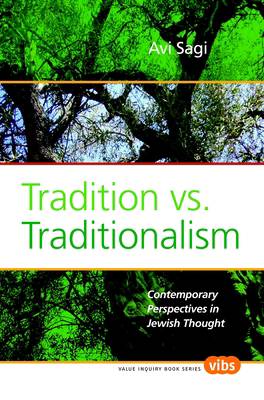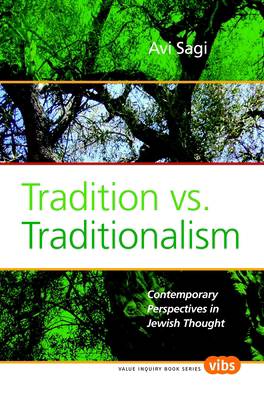
- Afhalen na 1 uur in een winkel met voorraad
- Gratis thuislevering in België vanaf € 30
- Ruim aanbod met 7 miljoen producten
- Afhalen na 1 uur in een winkel met voorraad
- Gratis thuislevering in België vanaf € 30
- Ruim aanbod met 7 miljoen producten
Zoeken
€ 116,95
+ 233 punten
Omschrijving
This book is a first attempt to examine the thought of key contemporary Jewish thinkers on the meaning of tradition in the context of two models. The classic model assumes that tradition reflects lack of dynamism and reflectiveness, and the present's unqualified submission to the past. This view, however, is an image that the modernist ethos has ascribed to the tradition so as to remove it from modern existence. In the alternative model, a living tradition emerges as open and dynamic, developing through an ongoing dialogue between present and past.
The Jewish philosophers discussed in this work-Joseph B. Soloveitchik, Yeshayahu Leibowitz, David Hartman, and Eliezer Goldman-ascribe compelling canonic status to the tradition, and the analysis of their thought discloses the tension between these two models. The book carefully traces the course they have plotted along the various interpretations of tradition through their approach to Scripture and to Halakhah.
The Jewish philosophers discussed in this work-Joseph B. Soloveitchik, Yeshayahu Leibowitz, David Hartman, and Eliezer Goldman-ascribe compelling canonic status to the tradition, and the analysis of their thought discloses the tension between these two models. The book carefully traces the course they have plotted along the various interpretations of tradition through their approach to Scripture and to Halakhah.
Specificaties
Betrokkenen
- Auteur(s):
- Uitgeverij:
Inhoud
- Aantal bladzijden:
- 236
- Taal:
- Engels
- Reeks:
- Reeksnummer:
- nr. 197
Eigenschappen
- Productcode (EAN):
- 9789042024786
- Verschijningsdatum:
- 1/01/2008
- Uitvoering:
- Paperback
- Formaat:
- Trade paperback (VS)
- Afmetingen:
- 156 mm x 228 mm
- Gewicht:
- 344 g

Alleen bij Standaard Boekhandel
+ 233 punten op je klantenkaart van Standaard Boekhandel
Beoordelingen
We publiceren alleen reviews die voldoen aan de voorwaarden voor reviews. Bekijk onze voorwaarden voor reviews.








